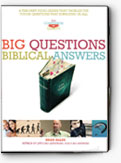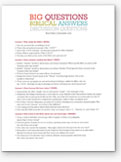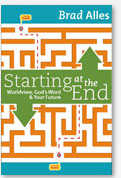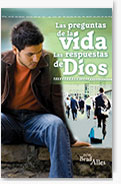In the Post-Modern world in which we live there is no universal Truth (capital “T”). There are only “truths” (small “t”) that are particular to a society and limited to individual perception. On the other hand, Christianity is a comprehensive, unified worldview that addresses all of life and reality. It is not just religious truth [&hellip
Christians are called to witness to others. So how can we do that effectively today? Ravi Zacharias gives us some pointers for dealing with Post-Modern public situations. In order to present the Gospel today, instead of opening the Bible first, ask questions of your audience instead. Then illustrate your point with examples. Finally bring the truth, [&hellip
How do we respond to these cultural consequences of Post-Modern thought? Here are some suggestions. First, we need to understand the times and be aware of the various mindsets around us. 1 Chronicles 12:32 mentions men who joined David to fight with him “who understood the times and knew what Israel should do.” In similar [&hellip
There are ramifications for Post-Modern thinking on our society. If we’ve rejected objective reality so the world is what you and your culture create, and if there is no truth, just interpretations by different people and cultures, then nothing can be known or communicated. What we have is a collection of truths for groups. We [&hellip
The biggest problem with Post-Modern thought is that it runs smack dab into reality. Not only do these proponents claim that you can create your own meaning to written words, but they also state that you construct your own world according to your culture and experience. According to the Post-Modernist, all of us are conditioned [&hellip
A third claim in Post-Modernism would be that any written text has no real meaning, just various interpretations open to readers. The phrase most commonly heard associated with this mindset would be, “What does this mean to you?” While in Post-Modernism, “each author (or artist) is the product of his or her own cultural setting [&hellip
A second claim of Post-Modernism is that there are no metanarratives or “big story” to explain all reality, whether the model is Creation or Evolution. Creation is discarded since God doesn’t exist, the assumption with which Post-Modernism begins. (Remember that all worldviews begin with an assumption: either God exists or He doesn’t.) In addition, the [&hellip
One Post-Modern claim would be the following: there is no truth, just interpretations by different people and cultures, and all are equally valid. Take the resurrection of Jesus as an example. In Post-Modern thought, the “Christian truth” is that Jesus rose from the dead, while in the “Muslim truth”, He didn’t even die on the [&hellip
In what could be called the Pre-Modern era, or before the 1600’s, there was a strong belief in the supernatural, namely God. Furthermore, people viewed oral and written traditions, like the Bible, to have authority to explain all of reality. The Bible, for instance, gave us the explanation of where we came from, why we’re [&hellip
You are free to believe what you want, but the real question would be, is it true? According to the American Heritage Dictionary, truth is defined as “conformity to knowledge, fact, actuality, or logic.” You could believe something, accepting it as true, genuine, or real, but that wouldn’t make it true. Take for example the [&hellip





















0
Comments
Add